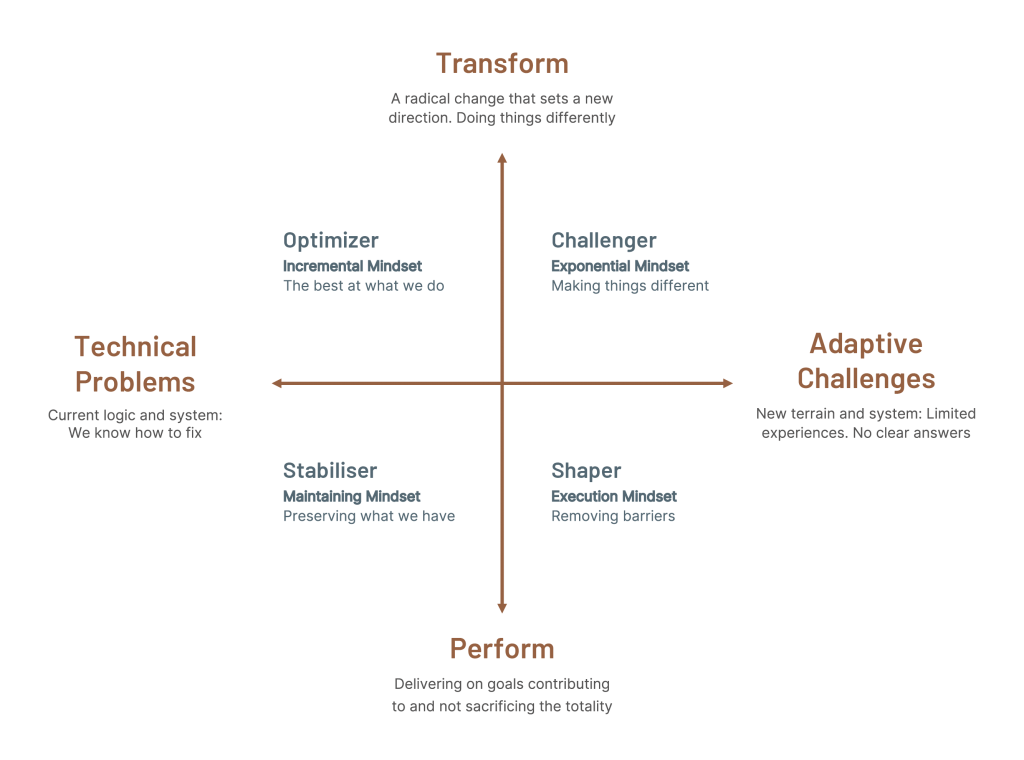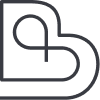Leadership accounts for over half of a person’s perception of their experience in an organization. How your leaders act shouldn’t be left to chance. Clear guidelines for leadership set an organization up for success and teams to thrive.
BreathingBusiness partners with you to define clear expectations and principles for your (future) leaders that reflect the needs of your people and business.
Companies are reinventing themselves. Leadership must do the same.
What will define your future leaders?
The Challenge
- and Opportunity

More than ever, leaders are faced with navigating the tension between performing and transforming – in the short- and long-term – as they handle both technical problems and adaptive challenges. They’re leading the business to deliver financially, leaning out operations – all while tapping into the opportunities presented as the world gets more global, digital, regulated, virtual, and exponential.
Leaders must be able to adapt to and balance the needs of all stakeholders including their customers and people, in any given moment.

Defining and communicating what is needed now in terms of leadership will help your leaders to adapt and adopt faster – aligning the company to the priorities at hand
Clarity reduces the risk of leaders – when in doubt – returning to old behaviors and known approaches that might feel more comfortable yet might not bring the company forward, for instance focusing on short term gains instead of balancing short and long term.
As you become clear on what resilient leadership means for you and your organization – you can recruit, develop and promot leaders that can adapt and adopt to what is needed – whereas other leaders need to be deselected.
Ready to (re)define great leadership for your organization, together?
BreathingBusiness helps you define and engage around your new Leadership Principles, providing guidance, shared vocabulary and clarity for your leaders and the rest of the organization.
There is another way...
Our Assess-Build-Sustain approach guides the process of co-creating Leadership Principles that capture the expectations of another way of leading.
What is wanted from our leaders?
What leaderships behaviors do we want to keep, grow, and build?
Do your Principles come to life at every touchpoint?
Case study
Leading the way, eliminating corporate diseases

Challenge
When a Nordic financial institution embarked on a transformation journey to stay relevant and remain a leader in a rapidly disrupted industry, they started with an assessment of their current culture. It became a real wake-up call for the leadership team.
The leadership assessment indicated that over a third of the time and effort spent by people, including leaders themselves, was on non-value-adding behaviors. A number of corporate diseases creating waste, draining capacity and slowing down the organization preventing them from being really competitive were identified:
- Bureaucracy
- Silos
- Slow or lack of decision-making
- Internal politics
- Slow and low innovation
The team realized that none of these dimension brought value and they themselves had been part of creating this organization that was not working optimally. As they understood that they had created it, they too could change it.
Opportunity
New Leadership Principles were defined listening to levels in the organization, as well as customers, what they were looking for from leaders. It was surprising to hear how much customers cared about and knew what was needed to build an even better environment for the people they related to in the organization.
The Leadership Principles included a “from-to” clarifying what had to change to be a successful as a leader in the organization:
- From head focused to leveraging your full self
- From focused on me and my needs to serving others needs
- From optimizing for the team to serving the whole
- From saying Yes to everything to clear prioritization
- From bringing value by providing answers to creating real impact through asking questions
Everyone with leadership responsibility went through training to build the capacity to listen, learn, and act in ways reflecting the new Leadership Principles and expected behaviors
A strong community was built where leaders shared stories of successes and learnings, of the dilemmas and challenges they faced, of how they brought the principles in practice in their different roles and parts of the organizations.
The Leadership Principles became the foundation of how the organization recruited, developed, rewarded, promoted, and also let go of leaders.
It was clear also to the rest of the organization what was celebrated and was not tolerated which became a significant lever for also shifting the culture of the organization. People have since expressed that they experience a more clear and truthful leadership.

